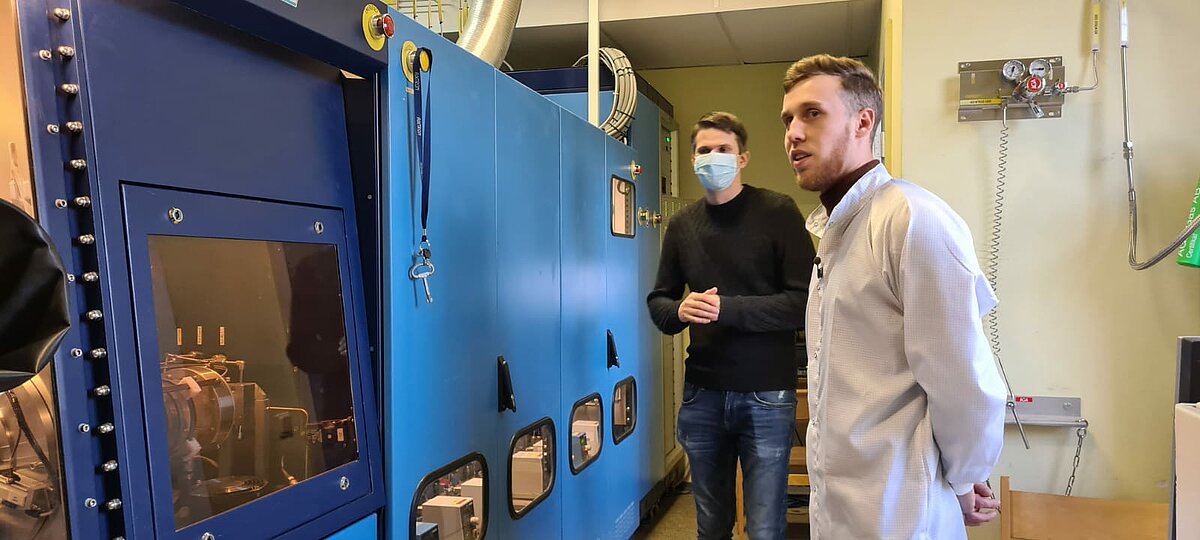
Gallium Oxide (Ga2O3) has become one of the most actively studied materials today. Almost every issue of a scientific journal related to materials science contains articles on the growing of gallium oxide, the properties of the material or the applications of its devices. The reason for the great interest is the promising properties of this wide bandgap material in electronic and optical applications (e.g. high power electronics, UV detectors and LEDs) together with relatively inexpensive substrate materials. Currently, research is underway on how gallium oxide thin films can be used in UV light emitting diodes, achieving a sterilizing effect in the fight against viruses, including Covid-19-causing SARS-CoV-2.
Gallium oxide research at the ISSP UL has been carried out in collaboration with partners from the Latvian-Swedish cooperation platform established within the CAMART2 project, which, besides ISSP UL, includes the Royal Institute of Technology (KTH) and the Consortium of Swedish Research Institutes (RISE). In this platform, the ISSP UL provides its experience in the field of materials synthesis and characterization, but KTH and RISE in the field of device design and manufacturing. This ongoing cooperation has so far been successful in applying for research grants and producing joint scientific publications.
An example, recently a project presented by Prof. Juris Purans (head of ISSP UL Thin Films Laboratory) dealing with epitaxially grown Ga2O3 thin films as ultrawide bandgap topological transparent electrodes for ultraviolet optoelectronics received the highest level of evaluation by the EU Project Review Panel: "This proposal is of high scientific quality, timing and credibility ".
Ga2O3 research is also taking place within the framework of the National Research Program “Mitigation of Covid-19 effects”. ISSP UL together with Riga Technical University, Rezekne Academy of Technology, University of Latvia, Institute of Electronics and Computer Science, Latvian Institute of Organic Synthesis, Latvian Biomedical Research and Study center, Riga Stradinš University and Latvian State Institute of Wood Chemistry implements project "Integration of safe technologies for protection against Covid-19 in healthcare and high risk areas".
In order to limit the Covid-19 disease caused by the SARS-CoV-2 virus and reduce its consequences in Latvia, on April 30, 2020 the government of Latvia approved the proposal of the Ministry of Education and Science to allocate five million euros from state budget program "Funds for Unforeseen Events” to National Research Program “Mitigation of Covid-19 effects”.
The Ministry of Education and Science and the Ministry of Health of Latvia developed the National Research Program “Mitigation of Covid-19 effects” in cooperation with the strategic management board, with the participation of representatives from the Ministry of Defence, Ministry of Economics, Ministry of Welfare as well as the Ministry of Environmental Protection and Regional Development of Latvia and State Chancellery, Latvian Academy of Sciences, Association of Latvian Young Scientists, Employers' Confederation of Latvia and European Bioinformatics Institute (EBI).